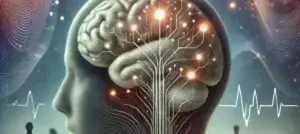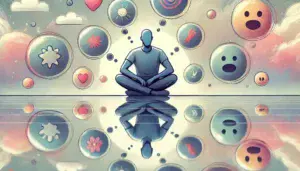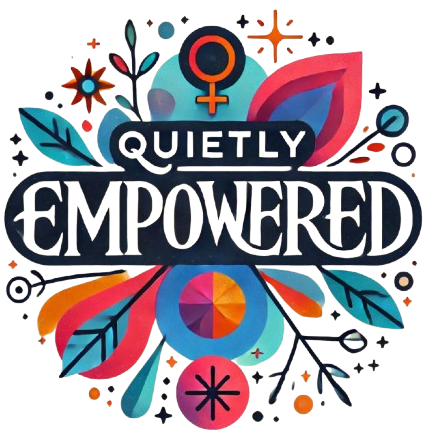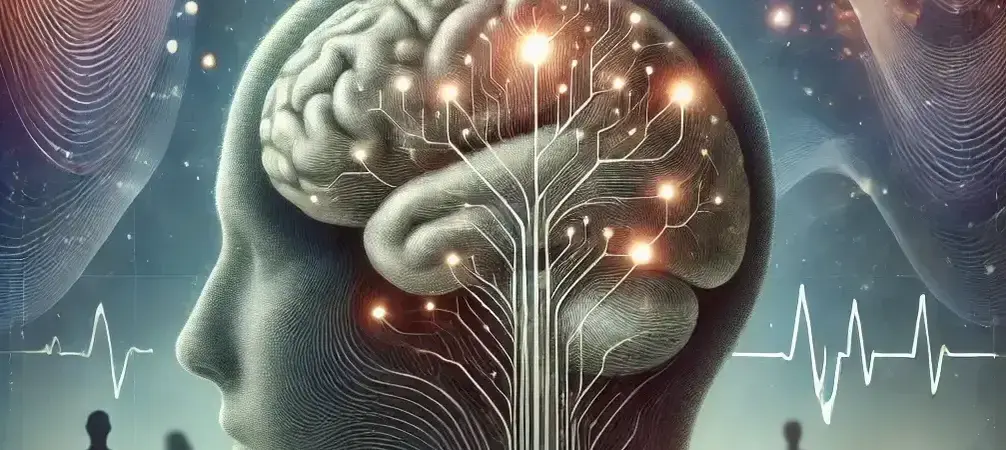
How Social Triggers Affect Anxiety—And Practical Ways to Manage Them
Introduction
Social triggers were a daily occurrence, keeping me constantly on edge. The situation worsened due to bullying—I was ostracized, ignored, and left to navigate my thoughts alone. With nowhere to turn, something had to occupy my headspace.
When I experienced social anxiety, it was often misinterpreted as ignorance or rudeness. But trying to explain social anxiety to someone who already dislikes you feels impossible. In many cases, the easiest solution is to find a new job, a fresh start. For me, I left because I simply couldn’t take it anymore. Unfortunately, not everyone has that option, especially when financial responsibilities come into play.
But even so, there is always a way forward. We shouldn’t have to walk on eggshells or live in fear of those who have hurt us. Yet, the mere thought of unexpectedly encountering them heightens anxiety, sometimes triggering panic attacks.
Understanding anxiety means recognizing the role that social triggers play. They act as invisible strings, pulling at our mental peace. Whether it’s an offhand comment from a friend or the overwhelming buzz of an open-plan office, these seemingly small moments can have a profound impact on our emotional well-being.
Unmasking Social Triggers: What Are They?
Social triggers aren’t always obvious, sneaking in through innocuous encounters in daily life. Imagine leaving a conversation feeling drained or stepping into a crowded room only to feel overwhelmed. These moments happen without us realizing their deeper impact.
Simply put, social triggers are external events or interactions that spark an emotional response. These vary widely from person to person. It might be receiving critical feedback at work for some, while others might react strongly to a perceived slight from a friend.
Checklist for Identifying Your Social Triggers
-
Do you feel overwhelmed in crowded places and struggle with managing social stress?
-
Do you experience anxiety when receiving feedback or criticism, making it hard to cope with social anxiety?
-
Does coping with social anxiety feel like a daily challenge?
-
Do certain sounds, smells, or places bring back stressful memories, acting as hidden anxiety triggers?
-
Does social comparison on social media negatively affect your mood and self-esteem?
-
Do you struggle with identifying anxiety triggers in daily life, making it hard to control your stress levels?
-
Do workplace interactions trigger stress or anxiety, making it difficult to manage social anxiety in professional settings?
Self-Reflection Questions to Deepen Awareness
In addition to identifying your triggers, take a moment to reflect on these deeper questions:
-
What are some recurring situations that consistently heighten my anxiety?
-
How do I typically respond to social triggers, and is my response helpful?
-
Are there certain people or environments that make me feel more anxious than others?
-
How do I feel physically and emotionally when I am triggered?
-
Have past experiences shaped the way I react to certain social situations?
-
What small changes can I make to feel more in control when I encounter a trigger?
-
Who in my life provides a safe space for me to talk about my anxiety?
-
What self-care practices help me reset after a stressful social interaction?
Taking time to reflect on these questions can help increase self-awareness and empower you to manage your anxiety more effectively.
The Science of Anxiety: Why Does This Happen?
Anxiety isn’t just about feeling nervous—it’s a deeply rooted survival mechanism designed to protect us from threats. While it once helped our ancestors escape danger, in modern times, it often misfires in everyday situations.
According to the National Institute of Mental Health (NIMH), anxiety disorders affect over 30% of adults at some point in their lives (NIMH, 2023). The brain’s amygdala detects perceived threats and triggers the fight-or-flight response, causing rapid heartbeat, faster breathing, and neurotransmitter imbalances like serotonin changes (Harvard Medical School, 2022).
Common Anxiety Disorders
-
Generalized Anxiety Disorder (GAD): Persistent, excessive worry about everyday life (American Psychological Association, 2023).
-
Social Anxiety Disorder: Fear of social situations and judgment from others (Mayo Clinic, 2023).
-
Panic Disorder: Sudden, intense episodes of fear without warning (Johns Hopkins Medicine, 2023).
Understanding the science behind anxiety can help normalize these reactions and make them more manageable.
Identifying Personal Triggers: A Self-Reflective Approach

Spotting what sets off your anxiety can feel like searching for a needle in a haystack, but it’s crucial for gaining control. Becoming more self-aware is the first step. Maybe it’s crowded places, sudden deadlines, or even certain people that leave you feeling uneasy.
How to Identify Your Triggers
-
Keep a Journal: Track your experiences and emotions daily.
-
Notice Patterns: Observe which situations consistently cause stress.
-
Reflect on Past Experiences: Childhood experiences and cultural background shape our social triggers.
By spending time observing and acknowledging these triggers, we can gradually anticipate and manage our reactions.
Common Social Situations That Worsen Anxiety
Some social environments create more stress than others. Understanding these scenarios can help prepare for them.
High-Stress Social Triggers
-
Public Speaking: Fear of making mistakes in front of an audience.
-
Networking Events: Pressure to impress strangers can be overwhelming.
-
Social Comparison: Seeing others succeed while feeling stuck can trigger insecurity (Psychology Today, 2022).
-
Workplace Anxiety: Deadlines, meetings, and office politics contribute to chronic stress.
Recognizing these common scenarios empowers us to pre-plan coping strategies, such as relaxation techniques or mindful breathing exercises.
Digital Age Dynamics: Social Media and Anxiety
Social media is deeply ingrained in our daily lives, but it can also be a source of stress. Research from Psychology Today suggests that social media contributes to higher anxiety levels, particularly among younger generations (Psychology Today, 2022).
How Social Media Triggers Anxiety
-
Comparison Culture: Seeing curated highlights of others’ lives fosters feelings of inadequacy.
-
Fear of Missing Out (FOMO): Constant exposure to events we’re not part of can increase social anxiety.
-
Pressure to Engage: Maintaining likes, comments, and interactions can feel like a social obligation.
Coping Strategies:
-
Set Boundaries: Limit screen time and take social media detoxes.
-
Curate Your Feed: Follow accounts that promote mental well-being.
-
Mindful Consumption: Engage with content intentionally rather than mindlessly scrolling.
Practical Steps to Manage Social Triggers
Understanding social triggers is one thing—handling them effectively is another. Here are practical steps to manage anxiety in social situations:
1. Cognitive Behavioral Techniques (CBT)
-
Identify Negative Thoughts: Challenge irrational fears with logical reasoning.
-
Reframe Anxiety: Replace fearful thoughts with balanced perspectives.
-
Develop Coping Statements: Prepare affirmations like “I am capable of handling this situation.”
-
Learn How to Manage Social Stress: Learn How to Manage Social Stress: Apply CBT techniques to shift thought patterns.
2. Grounding Exercises
-
5-4-3-2-1 Method: Identify five things you see, four things you touch, three things you hear, two things you smell, and one thing you taste to stay present.
-
Progressive Muscle Relaxation: Tense and relax different muscle groups to release physical tension.
3. Exposure Therapy
- Gradually expose yourself to anxiety-provoking situations in small, controlled settings to desensitize your reaction.
4. Mindfulness and Meditation
-
Practice Daily Meditation: Even 10 minutes a day can significantly reduce anxiety.
-
Use Deep Breathing Techniques: Try the 4-7-8 breathing method (inhale for 4 seconds, hold for 7, exhale for 8).
5. Social Support & Therapy
-
Talk to a Trusted Friend or Support Group: Opening up about your struggles can ease emotional burden.
-
Seek Professional Help: A therapist can provide personalized coping strategies tailored to your needs.
Call-to-Action: Take a Self-Assessment Quiz
If you’re unsure about your social triggers, take a self-assessment quiz to identify areas where anxiety impacts your daily life. Visit Mental Health America’s Anxiety Test for a free, confidential assessment.
For additional support, explore resources from the National Institute of Mental Health (NIMH) and Anxiety & Depression Association of America (ADAA) to learn about therapy options and self-help strategies.
Conclusion: Moving Forward with Awareness and Compassion
The journey to understanding anxiety through social triggers isn’t a straight path, but with awareness, it becomes more navigable. Recognizing the hidden impacts and personal nuances of these triggers lays the groundwork for progress.
Developing empathy for yourself and others experiencing anxiety is essential. This understanding fosters a supportive environment where growth and healing can flourish.
If you have strategies that have helped you manage social triggers or if you have questions about how to cope, feel free to share your experiences in the comments. Together, we can create a space of awareness and support.
Author Bio
Written by Michael Kenny is a mental health advocate passionate about raising awareness of anxiety and its impact on daily life. With personal experience navigating social anxiety, Michael Kenny shares practical insights to help others find balance in a hyper-connected world.

